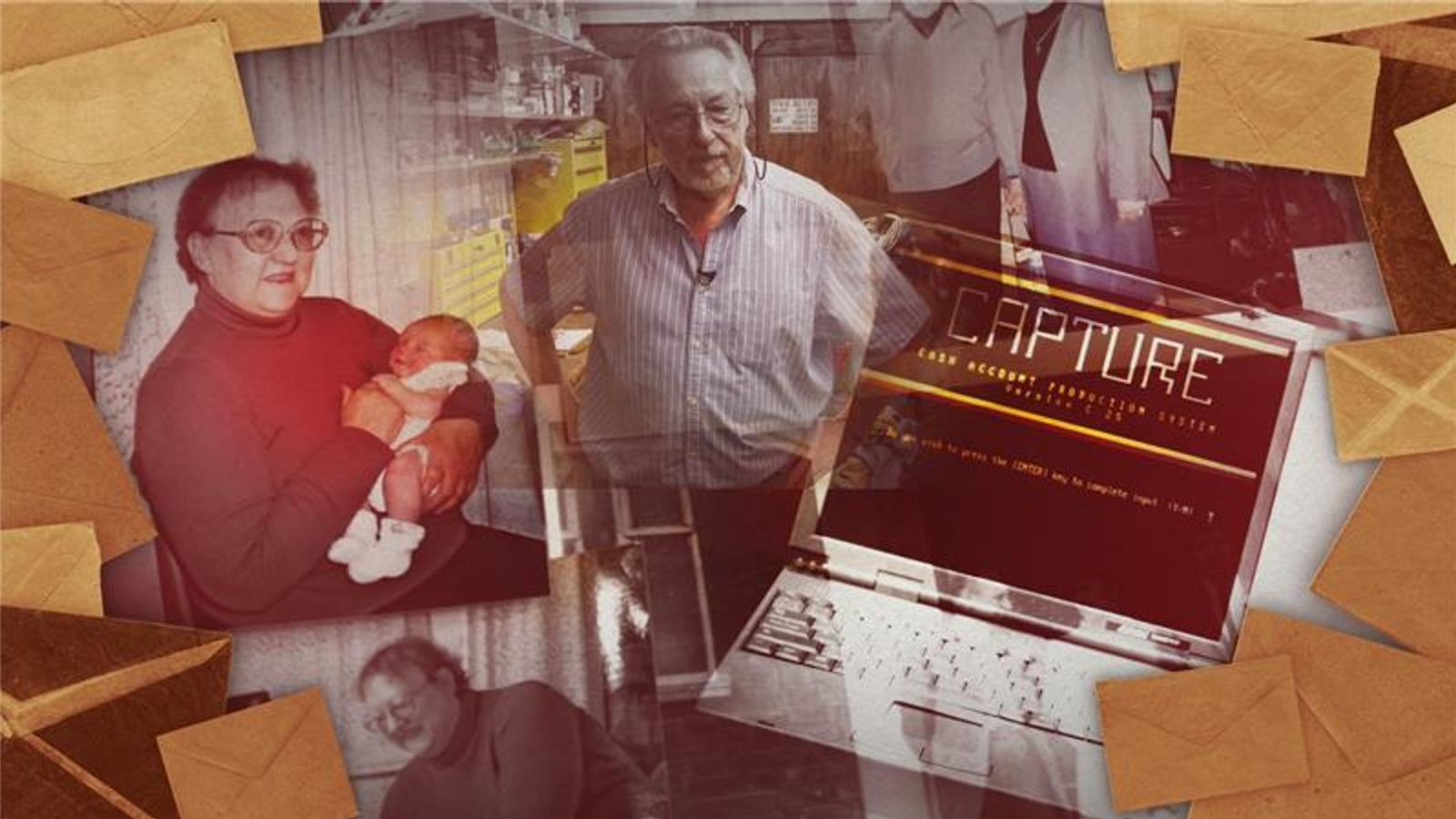Ransomware has long been plaguing American municipalities. It appeared to be another typical ransomware attack that impacted the city of Columbus, Ohio, this past July. The city’s response to the hack, however, was not, and it has cybersecurity and legal experts across the country questioning its motives.
Connor Goodwolf (legal name is David Leroy Ross) is an IT consultant who plumbs the dark web as part of his job. “I track dark web-type crimes, criminal organizations, and stuff like what the Telegram CEO has been arrested for,” Goodwolf said.
So when word got out that the city of Columbus, his hometown, had been breached, Goodwolf did what he does: he poked around online. It didn’t take him long to discover what the hackers had in their possession.
“It wasn’t the biggest, but it was one of the most impactful breaches I have seen,” Goodwolf said.
In some ways, he described it as a routine breach, with personal identifiable information, protected health information, Social Security numbers and driver’s license photos exposed. However, because multiple databases were breached, it was more encompassing than other attacks. According to Goodwolf, the hackers had breached multiple databases from the city, the police, and the prosecutor’s office. There were arrest records and sensitive information about minors and domestic violence victims. Some of the breached databases, he says, went back to 1999.
Goodwolf found over three terabytes of data that took over 8 hours to download.
“The first thing I see is the prosecutor’s database, and I’m like ‘holy sh-t’ these are domestic violence victims. When it comes to domestic violence victims, we need to protect them the most because they have already been victimized once, and now they are again by having their information exposed,” he said.
Goodwolf’s first action was to contact the city to let them know how serious the breach was, because what he saw contradicted official statements. At a press conference on August 13, Columbus Mayor Andrew Ginther said: “The personal data that the threat actor published to the dark web was either encrypted or corrupted, so the majority of the data came by the threat actor is unusable.”
But what Goodwolf was finding didn’t support that view. “I tried to reach out to the city multiple times to multiple departments and was blown off,” he said.
Google-owned Mandiant, as well as many other top cybersecurity firms, have been tracking a continued increase in ransomware attacks, both in prevalence and severity, and the rise of the Rhysida Group behind the Columbus hack, which has come into prominence within the last year.
The Rhysida Group claimed responsibility for the hack. While not much is known about the cyber gang, Goodwolf and other security experts say they appear to be state-sponsored and based in Eastern Europe, possibly linked to Russia. Goodwolf says these ransomware gangs are “professional operations” with a staff, paid vacation, and PR people.
“They have ramped up the attacks and targets since last autumn,” he said.
The U.S. government’s Cybersecurity and Infrastructure Security Agency issued a bulletin about Rhysida last November.
Goodwolf said that because no one from the city responded to him he went to the local media and shared data with journalists to get the word out about the seriousness of the breach. And that is when he heard from the city of Columbus, in the form of a lawsuit and a temporary restraining order preventing him from disseminating additional information.
The city defended its response in a statement to CNBC:
“The City initially moved to obtain this order, which was granted by the Court, to prevent the dissemination of sensitive and confidential information, potentially including the identities of undercover police officers, that threatens public safety and criminal investigations.”
The city’s temporary 14-day restraining order against Goodwolf has since expired, and now it has a preliminary injunction and an agreement with Goodwolf not to release more data.
“It should be noted that the Court order does not prohibit the defendant from discussing the data breach or even describing what kind of data was exposed,” the city’s statement added. “It simply prohibits the individual from disseminating the stolen data posted on the dark web. The City remains engaged with federal authorities and cyber security experts to respond to this cyber intrusion.”
Meanwhile, the mayor did have to perform a mea culpa at a subsequent press conference, saying his initial statements were based on the information he had at the time. “It was the best information we had at the time. Clearly, we discovered that that was inaccurate information and I have to accept responsibility for that.”
Realizing the exposure to residents was greater than first thought, the city is offering two years of free credit monitoring from Experian. This includes anyone who has had contact with the city of Columbus via an arrest or other business. Columbus is also working with Legal Aid to see what additional protections are needed for domestic violence victims who may have been compromised or need help with civil protection orders.
To date, the city has not paid the hackers, who were demanding $2 million in ransom.
‘He’s Not Edward Snowden’
Those who study cybersecurity law and work within the realm expressed surprise at Columbus filing a civil lawsuit against the researcher.
“Lawsuits against data security researchers are rare,” said Raymond Ku, professor of law at Case Western Reserve University. On the rare occasion they do happen, he said, it is usually when the researcher is alleged to have disclosed how a flaw was or can be exploited, which would then allow others to take advantage of the flaw as well.
“He wasn’t Edward Snowden,” said Kyle Hanslovan, CEO of cybersecurity company Huntress, who described himself as troubled by the city of Columbus’s response and what it could mean for future breaches. Snowden was a government contract employee who leaked classified information and faced criminal charges, but considered himself a whistleblower. Goodwolf, Hanslovan says, is a Good Samaritan who independently found the breached data.
“In this case, it appears we have just silenced someone who, as far as I can tell, appears to be a security researcher who did the bare minimum and confirmed the official statements made were not true. This can’t possibly be an appropriate use of the courts,” Hanslovan said, predicting the case will be quickly overturned.
Columbus City Attorney Zach Klein said during a September press conference that the case was “not about freedom of speech or whistleblowing. This is about downloading and disclosure of stolen criminal investigatory records.”
Hanslovan worries about the ripple effect where cybersecurity consultants and researchers are afraid to do their jobs for fear of being sued. “The bigger story here is are we seeing the emergence of a new playbook” for hacking response in which individuals are silenced, and that should not be welcomed, he said. “Silencing any opinion, even for 14 days, could be enough to prevent something credible from coming to light, and that terrifies me,” Hanslovan said. “That voice needs to be heard. As we see bigger cybersecurity incidents come up, I am worried that folks will be more concerned bringing them to light.”
Scott Dylan, founder of United Kingdom-based venture capital firm NexaTech Ventures, also thinks the actions of the city of Columbus could induce a chilling effect on the field of cybersecurity.
“As the field of cyberlaw continues to mature, this case is likely to be referenced in future discussions about the role of researchers in the aftermath of data breaches,” Dylan said.
He says legal frameworks must evolve to keep pace with the sophistication of both cyberattacks and the ethical dilemmas they generate, and the approach taken by Columbus is a mistake.
Meanwhile, the legal process will grind on for Goodwolf. Despite Columbus and Goodwolf reaching an agreement last week on the dissemination of information, the city is still suing him for damages in a civil suit that could reach $25,000 or higher. Goodwolf is representing himself in his talks with the city, though says that he has a lawyer on standby, if needed.
Some residents have filed a class-action lawsuit against the city. Goodwolf says that 55% of the information breached has been sold onto the dark web, while 45% is available for anyone with the skills to access it.
Dylan thinks the city is taking a big risk, even if its actions may be legally defensible, by creating the appearance of an attempt to silence discourse rather than encourage transparency. “It’s a strategy that could backfire, both in terms of public trust and future litigation,” he said.
“I am hoping the city realizes the mistake of filing a civil suit and the implications not just on security,” Goodwolf said, noting that Intel is building a $1 billion facility in a Columbus suburb. In recent years, the city has been positioning itself as a new tech hub in the Midwest, and attacking white hats and cybersecurity researchers, he said, could cause some in the tech sector to rethink it as a location.












